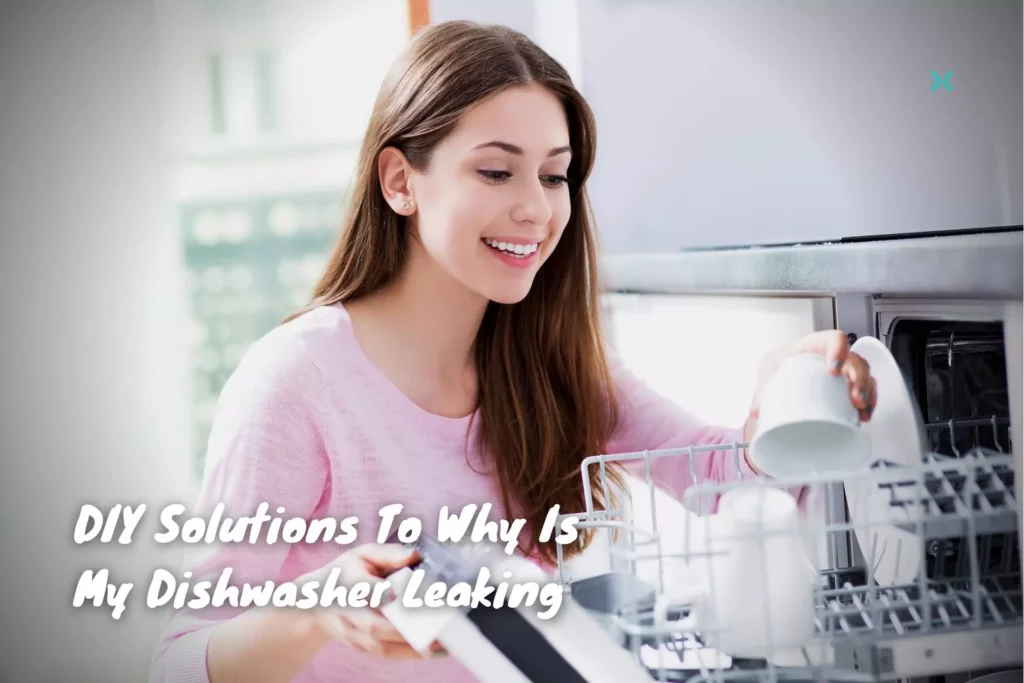⭐ Why Is My Dishwasher Leaking?
Your dishwasher is an essential appliance in any home, but when it starts to leak, you may find yourself wondering, why is my dishwasher leaking?
This blog will discuss the top causes of dishwasher leaks and solutions to get to the bottom of this problem and help you repair your dishwasher quickly.
From making sure the door seal is tight and checking for cracks to troubleshooting the drain hose or drain pump, these handy tips will have your dishwasher back up and running in no time
Table of Contents
1. Leaky Dishwasher Door
A few different issues can cause a leaky dishwasher door.
For starters, if your dishwasher door is not sealed correctly, water may leak out while the appliance is running.
Additionally, the rubber dishwasher door gasket may be worn, damaged, or have food stuck to it, leading to dishwasher leaks.
🧰 The Solution!
When fixing a leaking dishwasher door, you can try several DIY solutions.
First, ensure your door is firmly closed, and all seals are tight.
Check for any visible cracks in the rubber gasket around the edge of the door.
If necessary, replace the rubber gasket with an identical one from your local home improvement store.
✅ PRO TIP: Take a photo of the manufacturer’s label when looking for a replacement.
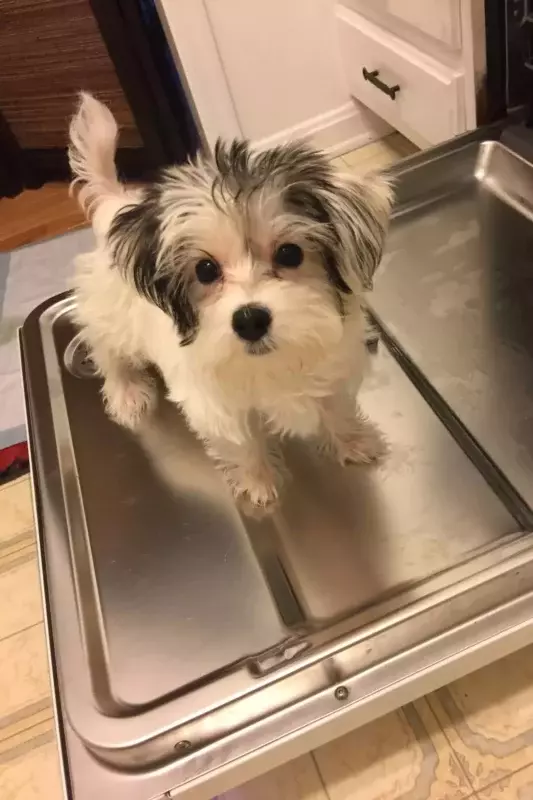
2. Your Dishwasher Isn’t Level
For your dishwasher to operate efficiently, it must be level and properly aligned.
An unlevel dishwasher can cause water to overflow the tub and escape beneath the door, resulting in a leaking appliance.
🧰 The Solution!
To prevent this, check that the dishwasher is level using a spirit level and adjust the elevation legs as needed.
Additionally, inspect all fastening devices, such as bolts and washers, to ensure they are secure.
3. Wrong Dishwasher Detergent or Pod
Using the wrong dishwashing detergent, pod or using dish soap can cause your dishwasher to leak.
A dishwasher’s tub may fill with too many suds as a result of using incorrect detergent, preventing water from draining outside the unit, which leads to leaks and flooding.
Related Reading: Is Your Dishwasher Pod Not Dissolving? Unravel the Mystery Here!
🧰 The Solution!
When using a dishwasher, only use detergent specifically designed for automatic dishwashing.
Keep your dishwasher detergent in a cool, dry area to maintain its freshness and ensure optimal performance.
4. Overfilled Dishwasher
When too many dishes are put in, the water level cannot rise enough to properly clean them, leading to suds that don’t drain well.
🧰 The Solution!
To prevent any water damage or flooding, ensure your dishwasher is not overloaded and you use the right detergent for your machine.
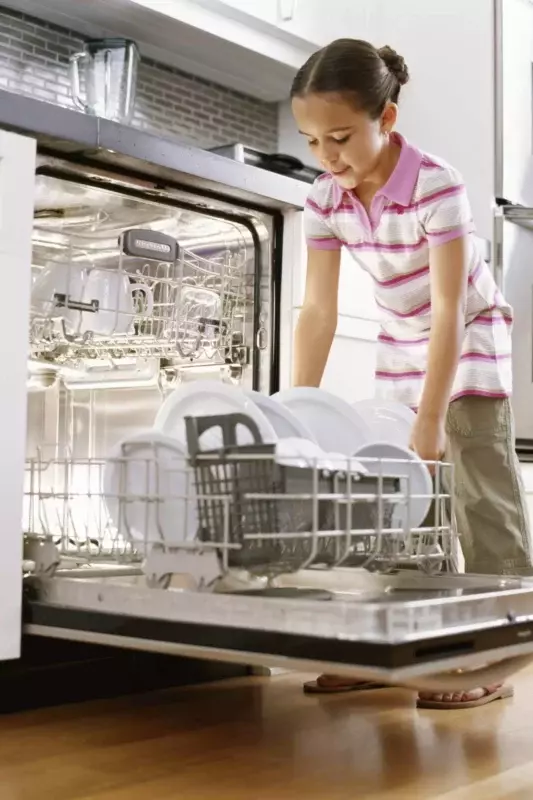
5. Leaking Dishwasher Tub
Over time, using cleaners and minerals in your dishwasher can cause wear and tear to the inside tub.
If neglected, this can weaken the material enough to start leaking water.
Depending on your dishwasher’s age and the damage’s extent, you may be able to repair this problem or need a complete dishwasher replacement.
🧰 The Solution!
While it may not always be possible to prevent a hole in the dishwasher tub, solutions are available.
Depending on the age of your unit, you may be able to repair the leak or have to replace the appliance entirely.
If you need a replacement, look into energy-efficient models that can help bring down your utility costs in the long run.
6. Loose or Damaged Valves
One of the most common causes of a dishwasher leaking is loose or damaged valves.
If you come across water leaking from the unit and can’t find any visible holes in the tub, it is likely due to a damaged valve.
Inspecting the hoses for signs such as rust, cracks, and wear and tear.
It may reveal the source of the issue, but if no signs are found, you may have to consult a professional to determine if a full replacement is necessary.
🧰 The Solution!
Start by inspecting all hoses for rust, cracks, and signs of wear and tear.
Once the issue has been determined, replace any parts that need to be replaced and make sure all components are properly secured.
Finally, you may have to double-check with a professional to confirm that the repairs have been successful.
7. The Spray Arm is Damaged or Clogged
Check the spray arm first if you notice water pooling around your unit or dripping from the door.
The spray arm is responsible for spraying water over the dishes, so if it is not working correctly, it may cause a leak.
🧰 The Solution!
To fix this issue, visually inspect the arm for any signs of damage and remove any blockages preventing the water from reaching the dishes.
A replacement may be necessary if there is extensive damage to the arm.
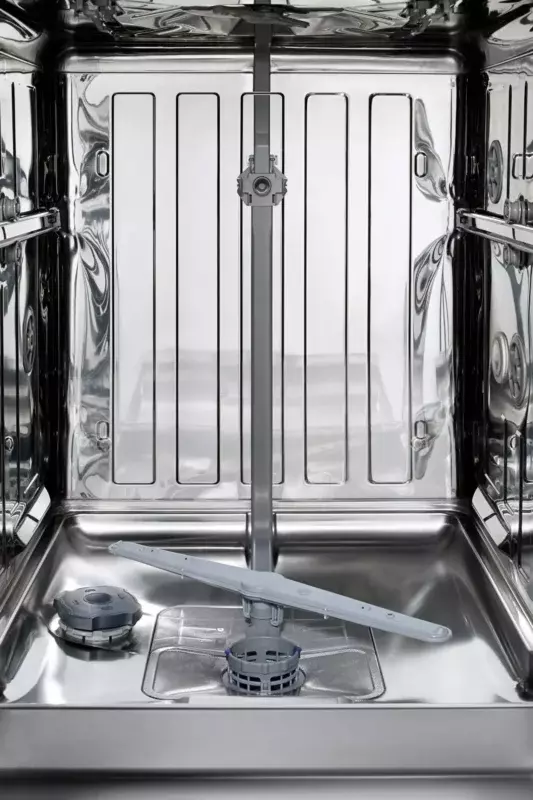
8. The Float Switch Isn’t Working Correctly
If the float switch in your dishwasher isn’t cutting off water during the wash cycle, it can lead to a leak.
The float switch is designed to cut off the water supply if it gets too high, so if it’s not working properly, water can spill out of the dishwasher.
🧰 The Solution!
To check the float switch in your dishwasher, open up the appliance and locate the mechanism.
It is typically located at the bottom of the dishwasher and looks like a small tube connected to the water inlet valve.
Carefully check for any signs of damage or corrosion on the float switch and around its connecting parts.
9. Loose or Damaged Drain Hose
The drain hose carries the water from the appliance to the drain pump through the drain line and eventually out through your sink drain.
This essential part can be found behind the kickplate panel at the base of your dishwasher, making it visible only when removed.
🧰 The Solution!
Look for water around the drain hose to diagnose a potential water leak in your dishwasher.
Remove the kickplate located at the bottom of the dishwasher and run a wash cycle to ensure any existing leaks will occur.
Check the connection points on either side of the hose, along its length, for signs of leaking.
If you find loose fittings or damaged hoses, it’s important to repair or replace them right away to avoid further damage.
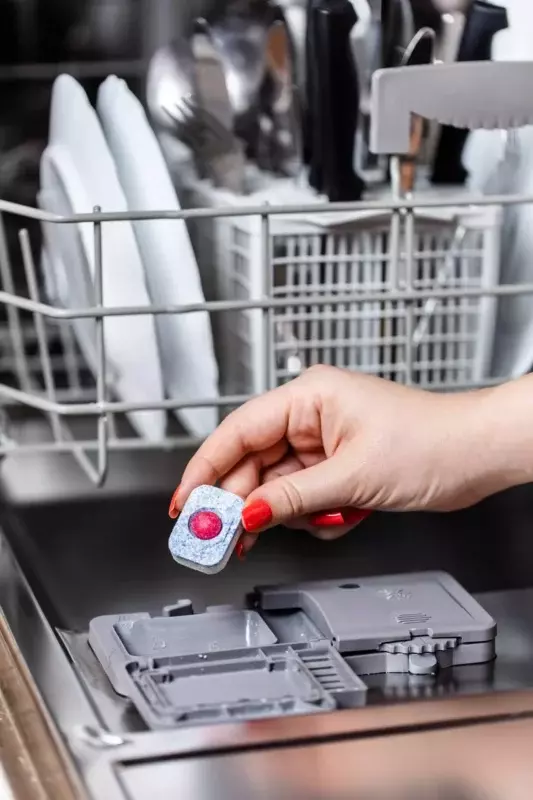
⭐ Conclusion
DIY solutions for repairing a dishwasher leaking water are an economical way to keep your appliance in top working condition.
Tackling minor issues like loose hoses or broken drain clamps can prevent more costly repairs and ensure that your dishwasher is functioning properly.
With some simple tools and a few minutes of your time, you can identify and address the root cause of a dishwasher leak.
If you don’t feel up to the task of making repairs at any time, it might be best to leave it in the hands of an expert.
Want to learn more about your home’s plumbing system? Feel free to check out our other plumbing articles!

